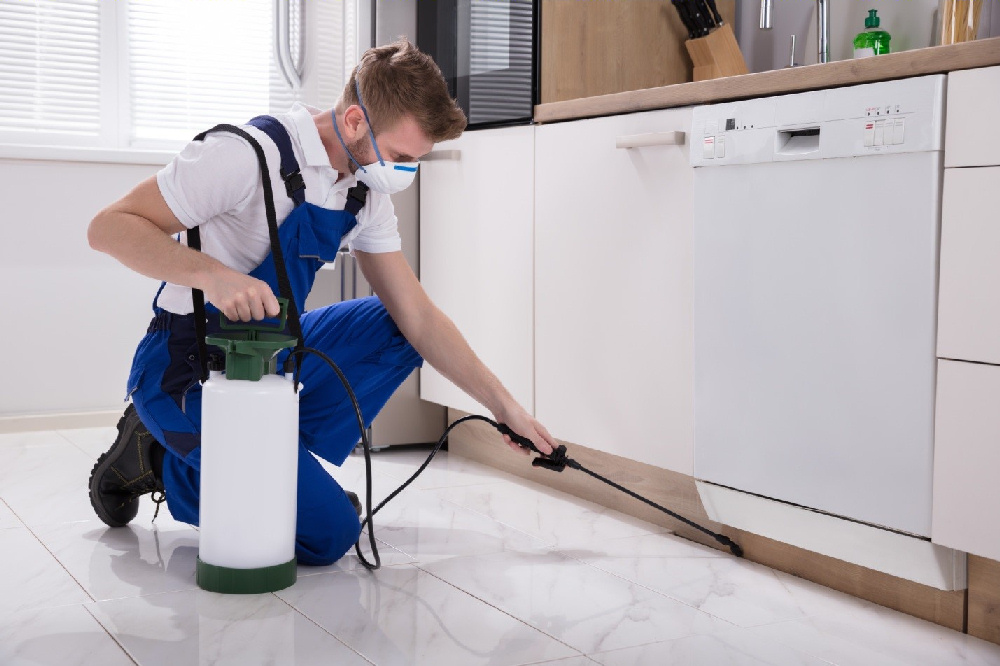Pest control is a critical aspect of maintaining a safe and healthy living environment. But what is pest control treatment? It refers to the methods and techniques used to manage and eliminate unwanted pests from residential and commercial properties. These pests can include insects, rodents, and other creatures that can cause damage or transmit diseases.
Understanding pest control treatments can help you choose the right approach for your home or business. This article aims to provide a comprehensive overview of what pest control treatments entail, their importance, and how you can effectively utilize them.

Understanding the Basics of Pest Control Treatments
Before diving deeper, its essential to understand what pest control treatments typically involve. These treatments are designed to address infestations and prevent future pest-related issues. They can be broadly categorized into several types, including:
- Biological control: Utilizing natural predators to manage pest populations.
- Chemical control: Applying pesticides to eliminate pests.
- Cultural control: Modifying everyday practices to deter pests, such as maintaining cleanliness.
- Physical control: Implementing barriers or traps to control pest movement.

Why is Pest Control Treatment Important?
The importance of pest control treatment cannot be overstated. Here are a few reasons why:
- Health Risks: Many pests, such as cockroaches and rodents, are known disease vectors that can lead to serious health issues.
- Property Damage: Insects like termites can cause significant damage to structures, leading to costly repairs.
- Quality of Life: An infestation can lead to stress and discomfort in your living space, affecting your overall well-being.

Common Pest Control Treatments Explained
Now that we understand the significance of pest control treatments, lets take a closer look at some of the most common methods used:
1. Chemical Pest Control
Chemical control methods involve the use of pesticides, which are chemicals designed to kill or repel pests. These substances can be applied in various forms including:
- Sprays: For immediate action against visible pests.
- Granules: Effective for targeting soil-borne pests.
- Baits: Attract pests and poison them upon consumption.
It is crucial to follow all safety guidelines when using chemical treatments. For detailed information on choosing the right pest control service, visit this link.
2. Biological Pest Control
This method relies on natural predators to control pest populations. For example, releasing ladybugs in a garden can help manage aphid infestations effectively. This method is environmentally friendly and reduces the need for chemicals.
3. Cultural Controls
Implementing good sanitation practices can deter pests from thriving in your environment. This includes:
- Sealing cracks and crevices.
- Proper waste management.
- Regular cleaning and maintenance.
Such practices can significantly reduce the likelihood of a pest infestation.
4. Physical Pest Control
Physical barriers, such as nets and screens, can prevent pests from entering your home. Traps can also be used for catching rodents or insects without the use of chemicals.

Choosing the Right Pest Control Method
Selecting the appropriate method for pest control treatment depends on the type of pest, the severity of the infestation, and personal preferences regarding chemical use. Consulting with a pest control professional can help you make an informed decision.
For more insights on what to expect after pest control treatments, you can read about the duration of pest control effectiveness.
When to Seek Professional Help
Sometimes, DIY methods may not be sufficient to manage a pest problem. In such cases, it may be necessary to seek professional pest control services. Signs that you should consider professional services include:
- Persistent infestations despite DIY efforts.
- Health issues arising from pest-related problems.
- Large-scale infestations that are difficult to address alone.
Preventative Measures to Avoid Pests
Preventing pests is far more effective than needing to eliminate them after an infestation. Here are some tips to avoid pests:
- Seal all food in airtight containers.
- Keep the home tidy, reducing clutter and debris.
- Ensure that outdoor spaces are maintained and free from standing water.
- Regularly check and maintain your home for vulnerabilities.
For additional tips on how to effectively manage your home pest control efforts, consider visiting this resource.
FAQs about Pest Control Treatments
-
How long does pest control treatment last?
The duration of pest control treatment efficacy varies by method but generally lasts between 30 to 90 days depending on the treatment used. -
Are pest control chemicals safe for pets?
Most pest control products are safe for pets if applied correctly. It is essential to follow the labels instructions and allow time for the area to dry before letting pets return. -
What should I do after pest control treatment?
After a treatment, avoid cleaning or vacuuming treated areas for at least a few days to ensure the effectiveness of the applied pesticides.
Here are some additional tips on pest management for your reference.
As an Amazon Associate, I earn from qualifying purchases.
